Scotland marks 75th anniversary of VJ Day
- Published
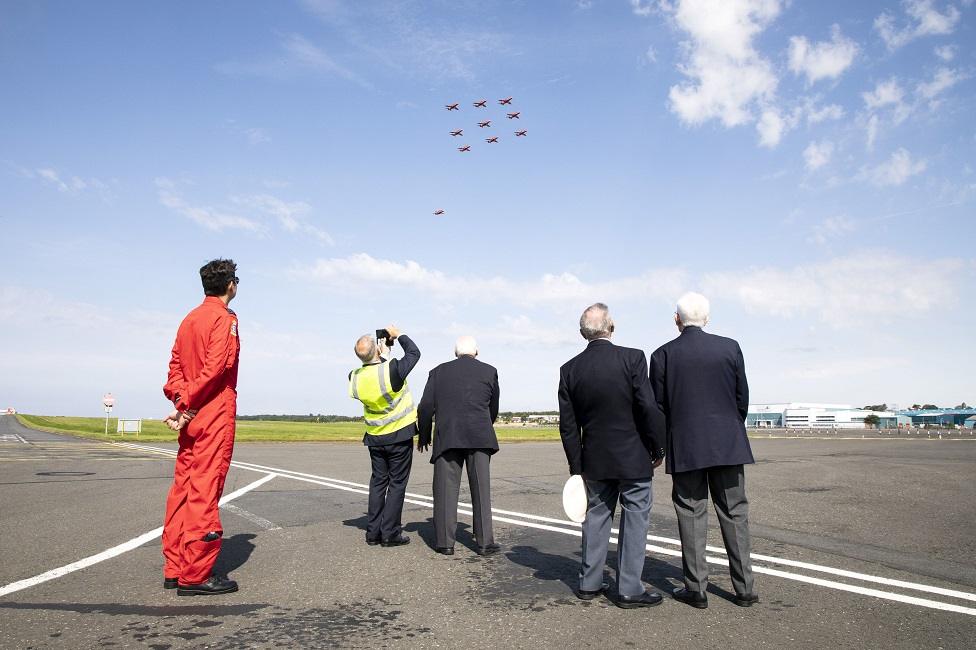
Veterans watched the Red Arrows from Prestwick Airport
Commemorations have taken place across Scotland for the 75th anniversary of Victory over Japan Day.
VJ Day marked the end of the conflict in Asia and brought World War Two to a close in 1945, four months after the fighting in Europe finished.
Millions of people from the allied countries took part in parades and street parties to celebrate.
But this year's events will mean commemorating in a different way because of the ongoing pandemic.
The Red Arrows had planned to fly over Edinburgh Castle but it was cancelled because of low cloud.
Despite that, they put on a display over Ayrshire and pilots met with veterans at Prestwick Airport.
What is VJ day?
VJ Day ended one of the worst episodes in British military history, during which tens of thousands of servicemen were forced to endure the brutalities of prisoner-of-war camps, where disease was rife and there was a lack of food and water.
For thousands of British civilians captured when British and Dutch Far East colonial territories were overrun, VJ Day was the end of illness, starvation rations and an uncertain future in the Japanese camps.
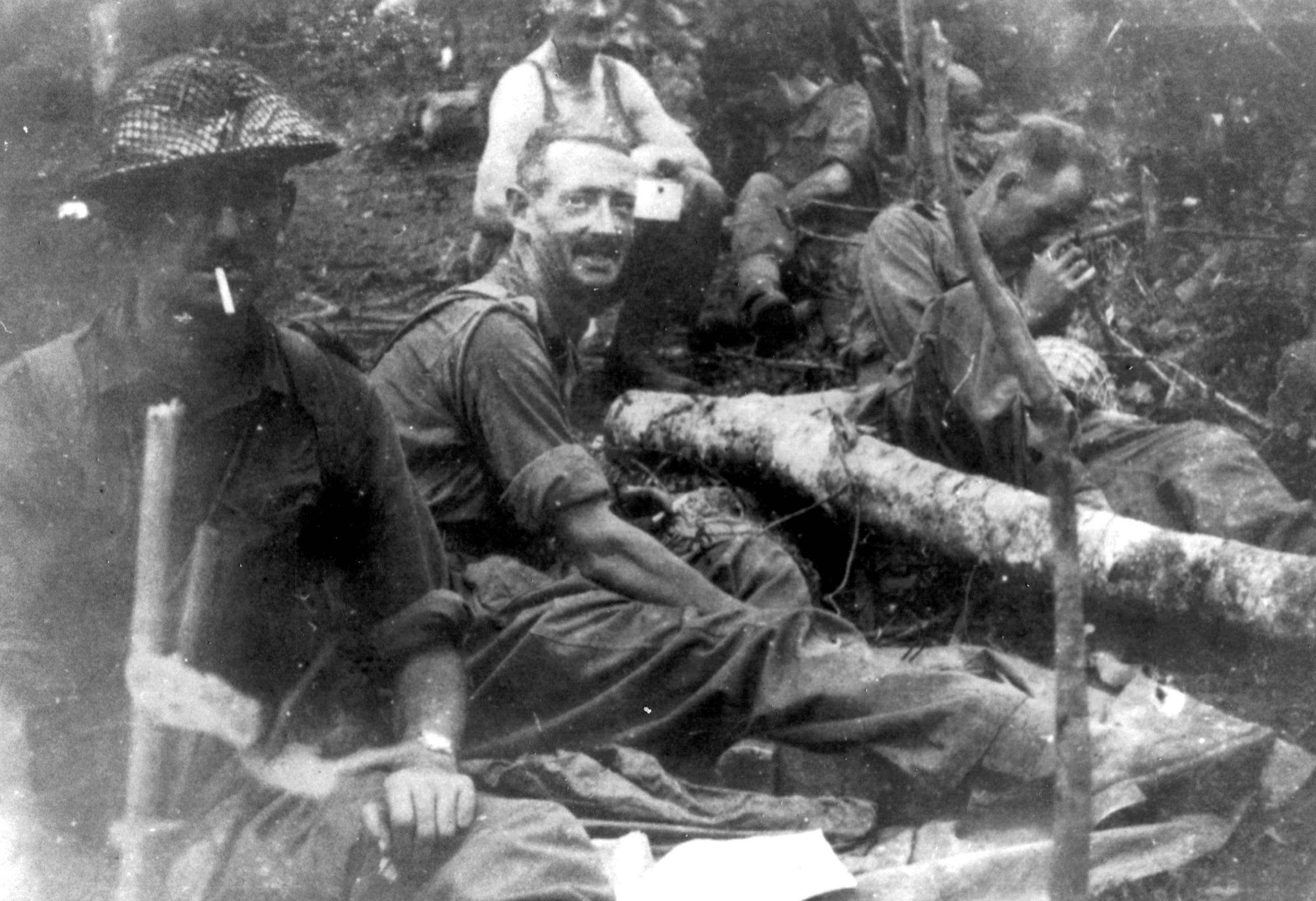
Major Howard, second in command, on the road to Kohima in India
It is estimated that there were 71,000 British and Commonwealth casualties of the war against Japan, including more than 12,000 prisoners of war who died in Japanese captivity.
More than 2.5 million Japanese military personnel and civilians are believed to have died over the course of the conflict.
How is the anniversary being commemorated this year?
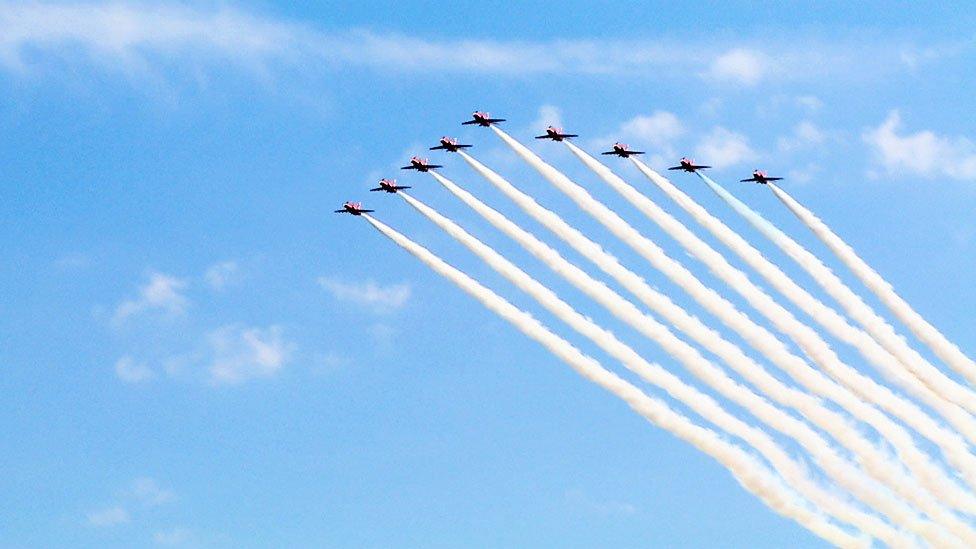
Crowds watched a Red Arrows display over Prestwick Airport
The Prince of Wales led a two-minute silence at the National Memorial Arboretum in Staffordshire as part of a service of remembrance.
In Edinburgh The Royal Scots held a wreath-laying ceremony at Laurieston Castle to remember their 496 serviceman who died in prisoner of war camps.
And in Ayrshire, crowds gathered to watch a Red Arrows display before they landed at Prestwick Airport.
Red Arrows pilots met three World War Two veterans who were waiting beside the runway.
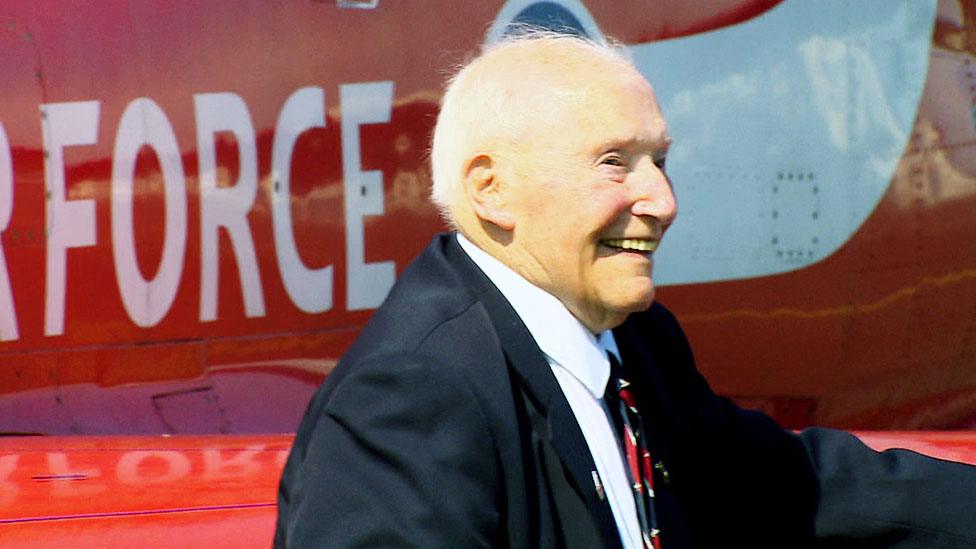
Whitson Johnson said that, at the end of the war, he was pleased all the killing had stopped
After watching the display, 96-year-old Whitson Johnson from Portobello, Edinburgh said: "I can't express my words. It was marvellous. Unbelievable. And they laid on the good weather as well."
Mr Johnson served with the RAF. On VJ Day 75 years ago, he decoded the message that informed his base in Burma that the war was over.
"The fighting stopped for everyone," he said. "Not just the British and Americans, but it also stopped for the Japanese as well. All the killing stopped and it stated to get back to normal. It took a year for me to get home."
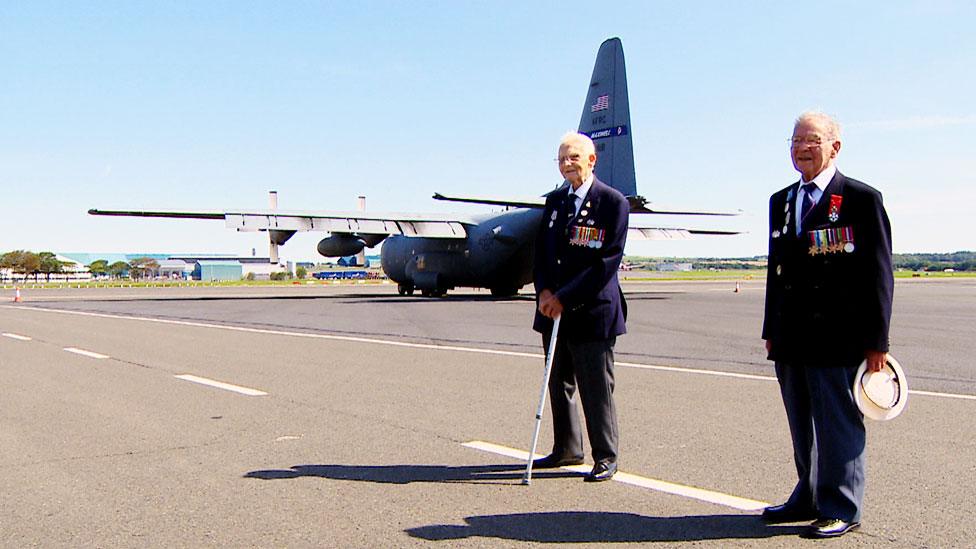
Barney Roberts and Albert Lamond served in the Far East during World War Two
Royal Navy veterans Albert Lamond and Barney Roberts were brought to Prestwick by the charity Erskine.
Mr Lamond was with an American fleet sailing to invade Japan when victory was declared.
"They dropped a bomb at Hiroshima and it was all called off," said Mr Lamond, 94. "It was the end. It was a relief it was over and it was finished. It was good to get home."
Barney Roberts remembers going to sleep without fear for the first time since the war started.
"I knew that I wasn't going to get shelled or bombed or torpedoed. I could go to my hammock and sleep. It was an amazing experience after five years living the way we had lived."

'The war is over. Japan has surrendered'
Jenny Martin, 78, was born in the Changi Prison Camp, in eastern Singapore, and spent the first three years of her life there with her mother, aunt and cousin.
She told BBC Scotland she could recall the moment she knew freedom would come and that she would never forget that day. She was only three years old.
"Unknown to us, a bomb fell on Hiroshima and then another on Nagasaki," Jenny said.
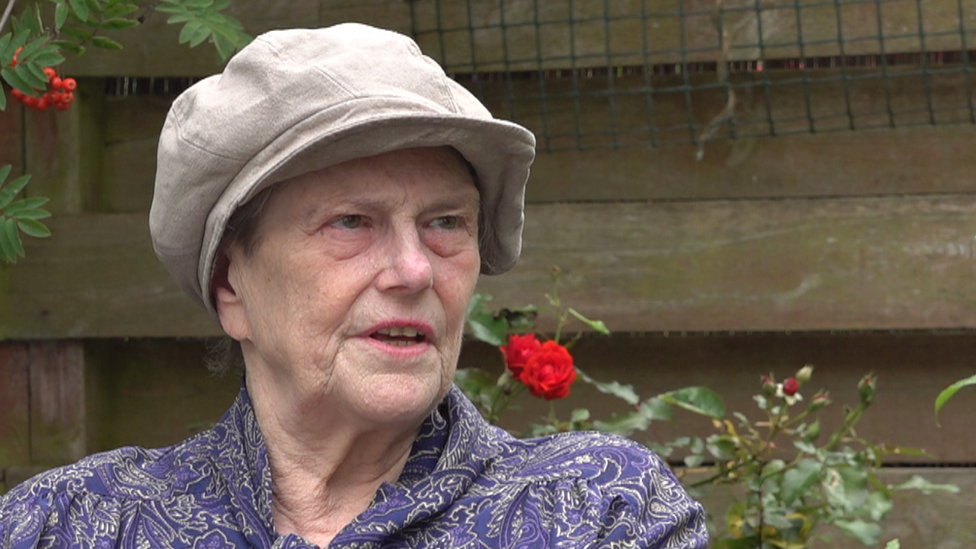
Jenny's mother was four months pregnant with her when she was taken in a truck to Changi prison
"One day, the guards all disappeared and then a plane flew overhead and dropped from its undercarriage thousands of leaflets, which fluttered to the ground like snow.
"Around me everyone was saying: 'Thank god, thank god!' and the leaflet read: 'The war is over. Japan has surrendered. We are coming for you very soon.'
A few days later, British soldiers arrived in trucks and they were taken to be given medical attention.
Jenny said she remembered sitting in a garden after she was free, fascinated by the plants, flowers and grass.
Along with her mother, she was reunited with her father. She was on the first ship to leave Singapore to return to the UK. She later studied in Edinburgh.

In a video message First Minster Nicola Sturgeon paid tribute to the those who died in World War Two and the men and women who served their country.
Ms Sturgeon also remembered those who spent time in prisoner of war camps and those who made sacrifices on the home front.
She added: "Together, they ensured the freedoms that we enjoy today.
"And all of us should be inspired by their service, resilience and bravery - as well as by their idealism, their determination to create a better world in the aftermath of the war."
